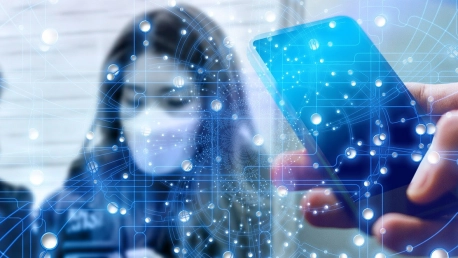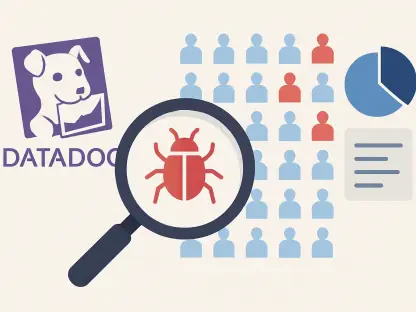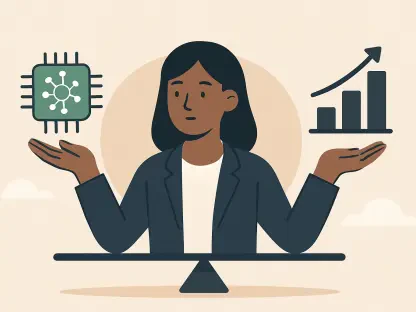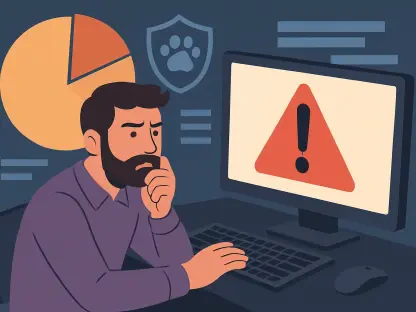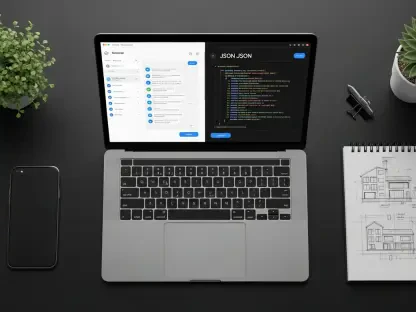Although the Covid-19 pandemic is still not behind us, countries and economies everywhere are preparing to ease lockdown measures and restart life. As a result, citizens are wondering how you will they live, work, and play after the social distancing measured will be reduced. Software and technology may be coming to the rescue, as examples from some countries already show. In a Belgian port, employees are now wearing bracelets to warn them if they get within less than a meter and a half of another person. Australia is also relying on technology, as almost two million people downloaded an app designed to make contact tracing easier.
So how exactly is technology expected to help prevent the spread of the virus?
Social Distancing Bracelets and Apps
In the Belgian port of Antwerp, employees are preparing to test smart bracelets designed to help them maintain social distance during the Covid-19 pandemic. Rombit is already providing workers with smart bracelets that can be used to warn them if and when vehicles approach or alert them if a colleague falls into the water. The company decided to update the existing software in order to help employees maintain the required social distance. The smart bracelets are expected to issue alerts if workers neglect the recommended distance and they will be tested by port workers during the following month.
Antwerp Port Chief Technology Officer Erwin Verstaelen said safety equipment is already used by workers everywhere for protection, and new gadgets may provide similar results during the pandemic.
“We’re adding a wearable on top of that to make sure that people are safe. And if something goes wrong, that it is being detected as soon as possible,” he said.
Using new software, apps, and gadgets to fight the spread of the virus might seem strange, but Belgium is not the first country to do so. After South Korea monitored and tracked thousands of its citizens, Australia also decided to use its own tracing app, Covidsafe, to fight the spread of the virus.
Australian Health Minister Greg Hunt said 1.13 million Australians downloaded the app six hours after its launch. That means that approximately 4.5% of the country’s entire population decided to use it. When asked what is the required number of people using the app for it to work, Hunt said “there’s no magic figure, but every set of people that download will make it easier and help us find those otherwise undiagnosed cases of community transmission.”
Big Companies Join the Trend
Given the important role played by social distancing during the Covid-19 pandemic, public health officials have agreed that contact tracing and monitoring are valuable tools in slowing its spread. Public health authorities, universities, NGOs, and companies around the world are making important efforts to develop new software and apps designed to help. Apple and Google announced they joined forces to develop a complete solution that uses Bluetooth technology to help governments everywhere reduce the spread of the pandemic. The new contact tracing solution will include application programming interfaces (APIs) and operating system-level technology to assist officials in tracking contacts. Given the urgent need, the plan is to implement this solution in two stages, according to the two American companies.
However, this app has the potential to monitor more than a third of the world’s total population, generating controversies regarding privacy protection around the world. While both companies assured the public that user privacy and security are “central to the design,” privacy advocates are worried that governments could collect more data than they need. While concerns regarding future government surveillance initiatives are growing, Germany has recently announced that it would stop the development of its own contact tracing app, relying on the solution provided by Apple and Google instead.
Conclusion
Apple and Google have already stated that using their app should always be a voluntary decision, but even if countries cannot enforce the use of an app, employers and institutions may choose to do so. With contact tracing apps only achieving their purpose if widely used, privacy and security measures become essential.
